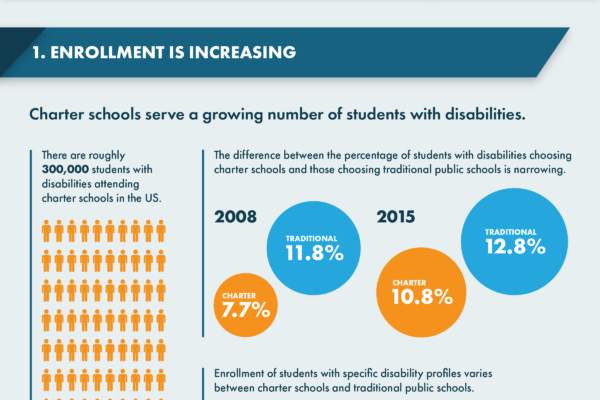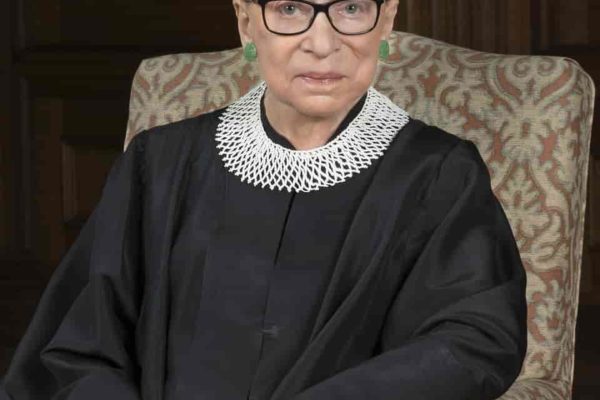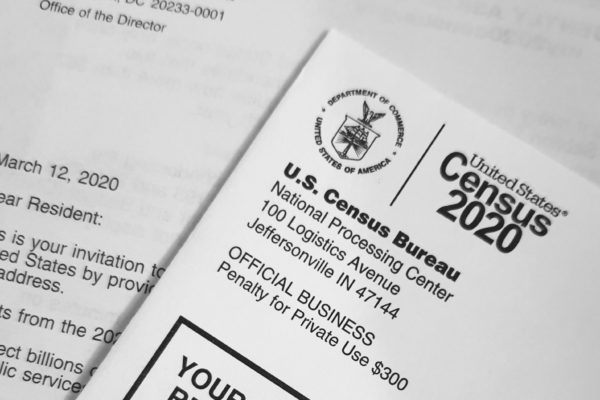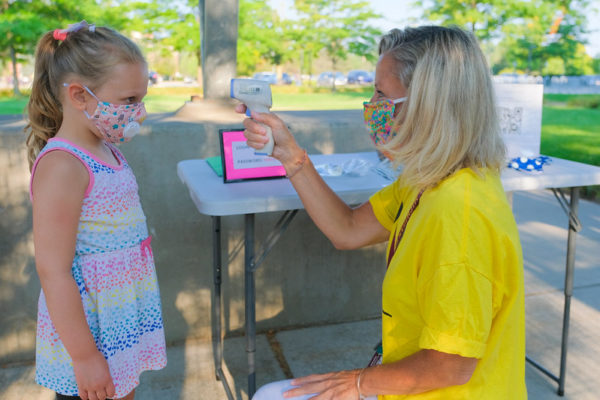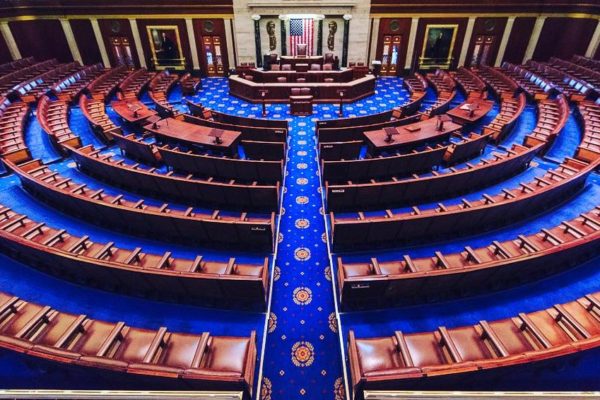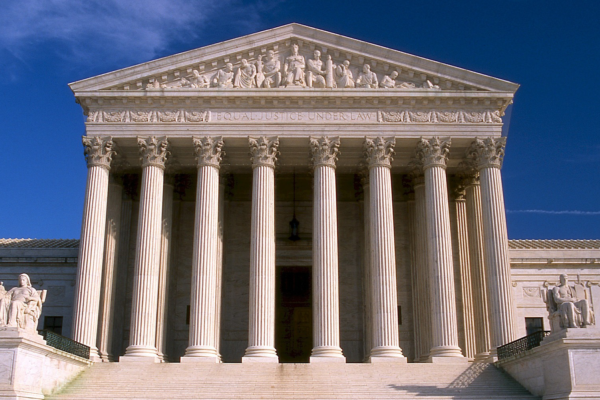As New Orleans educators and advocates for children, we are reflecting on the 15th anniversary of Hurricane Katrina and the ongoing manifestations of that trauma for our community and our children. With humility and transparency, we examine the mistakes we made in our efforts to reopen schools and educate children, especially children with disabilities, in the wake of that unimaginable disaster and loss. We hope that our lessons learned will prove valuable to educators nationwide as they reopen schools in the midst of the COVID-19 pandemic.
The Center’s bi-annual secondary analyses of the US Department of State’s Civil Rights Data Collection help to identify trend data related to special education in public schools, and in particular in US charter schools. This infographic illustrates key trends the Center identified in our analysis of the 2015-2016 data collection.
Justice Ruth Bader Ginsburg spent her life standing up—and speaking up—for just and equal treatment for all. She was the author of one of this country’s most impactful Supreme Court decisions on disability rights, Olmstead v. L.C., where she stood up against the systematic institutionalization of people with disabilities, holding that “unjustified institutional isolation is a form of discrimination” that “perpetuates unwarranted assumptions that persons so isolated are incapable or unworthy of participating in community life.”
Over the last several months, you’ve likely heard a lot of talk about the US Census—both calls to complete it and concerns about its timeline. Census results have broad implications for political representation, federal funding to states and communities, and how we see ourselves as a country. But far too few advocates for students with disabilities are aware of the role the Census plays in funding special education or the risks an incomplete count pose to students.
Disproportionate discipline of students with disabilities is a long-running crisis—and with the new rules and considerations around COVID-19, the stakes are even higher. Instead of simply reacting as incidents come up, however, schools have the opportunity to develop proactive discipline policies that serve students during the pandemic and also provide positive structures for the future.
We are deeply appreciative of the important clarification provided by Secretary DeVos to states ensuring states must plan to administer statewide summative assessments during the 2020-2021 school year. This is consistent with the requirements of the Every Student Succeeds Act (ESSA) which the Center worked collaboratively to support with charter school leaders as well as civil rights and special education advocates.
Federal budget processes are complex—and their implications for education are enormous.
While the ultimate FY2021 budget package is likely to be negotiated by a lame-duck Congress following the November election, the House’s proposal offers important insight into the priorities of Congressional Democrats and is therefore worth careful examination for its impacts on education broadly, as well as special education in charter schools specifically.
In February 2020, the Center completed an analysis of the challenges associated with educating students with disabilities in Connecticut charter schools. We found that these challenges are symptoms of two broader issues—the state’s inequitable public education funding system and problematic ambiguity in the state charter law.
The Center is thrilled to announce the recent hire of Jennifer Coco, who joins the team as Local Policy Manager. In this role, Coco will focus on leading a portfolio of ongoing special education initiatives in New Orleans for the Center.
In its June 30, 2020 decision in Espinoza v. Montana Department of Revenue, the United States Supreme Court allowed the use of public funds for private religious schools—a move that raises concerns about new legitimacy given to publicly funded voucher programs that do not support the rights of students with disabilities.

